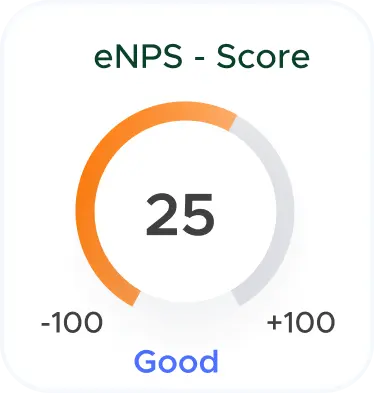✨ لا تفوت الفرصة! سجل في ندوة تقدير الموظفين عبر الإنترنت المقرر عقدها في 29 فبراير. 🎖️
✨ لا تفوت الفرصة! سجل في ندوة تقدير الموظفين عبر الإنترنت المقرر عقدها في 29 فبراير. 🎖️
سجل الآن
Bereavement leave, also known as compassionate leave, is a type of time off granted to employees following the death of a family member or loved one. It allows employees to take time away from work to grieve, attend funeral services, and handle necessary arrangements without the added stress of work responsibilities.
Bereavement leave, also known as compassionate leave or funeral leave, is a type of leave granted to employees who have suffered the loss of a loved one. It allows them time off from work to grieve, make funeral arrangements, and attend to other matters related to the death.
The primary purpose of bereavement leave is to provide employees with the necessary time and space to mourn the loss of a loved one and to cope with the emotional impact of their bereavement. It acknowledges the significant impact that a death in the family can have on an individual's emotional well-being and recognizes the importance of supporting employees during such difficult times.
Verification requirements for bereavement leave can vary depending on the employer's policies. Some employers may request proof of the death, such as a death certificate or obituary, while others may have more lenient verification processes. It's essential to check with your employer or refer to the company's bereavement leave policy for specific requirements.
Whether bereavement leave is paid or unpaid depends on the employer's policies and applicable laws. Some employers offer paid bereavement leave as part of their benefits package, while others may provide unpaid leave. Additionally, certain jurisdictions may have regulations requiring employers to offer paid bereavement leave under specific circumstances.
As of my last update in January 2022, California does not have a state law specifically requiring employers to offer paid bereavement leave. However, some employers in California may provide paid bereavement leave as part of their benefits package or collective bargaining agreements. It's essential to check with your employer or refer to California labor laws for the most up-to-date information.
Whether bereavement leave is required depends on the jurisdiction and the employer's policies. Some jurisdictions may have laws mandating employers to offer bereavement leave under certain conditions, while in others, it may be entirely at the discretion of the employer.
Generally, bereavement leave is intended to provide time off after the death of a loved one. However, some employers may offer other types of leave, such as sick leave or personal leave, that employees can use to attend to family members who are critically ill or in hospice care. It's essential to check with your employer for available options in such situations.
Yes, federal employees are typically eligible for bereavement leave. The specifics of bereavement leave for federal employees are governed by the Office of Personnel Management (OPM) regulations and policies.
Yes, federal employees may receive paid bereavement leave, subject to the policies outlined by the Office of Personnel Management (OPM). The amount of paid leave provided may vary depending on the circumstances and the employee's status.
Employers are generally not legally required to provide bereavement leave, but many jurisdictions have laws or regulations that govern the provision of time off for grieving employees. These laws may vary by jurisdiction, with some countries or states mandating a minimum amount of bereavement leave or specifying eligible relationships for which leave can be granted.
Bereavement leave policies vary widely among organizations, ranging from a few days to several weeks of paid or unpaid leave, depending on factors such as the employee's relationship to the deceased and the cultural norms of the organization. Some companies may offer additional benefits, such as counseling services or flexible work arrangements, to further support grieving employees.
Employers must ensure compliance with relevant employment laws and regulations governing bereavement leave, including providing eligible employees with the appropriate amount of time off and adhering to any notification and documentation requirements.
The bereavement leave policy components are:
The role of an employer in such case is the following:
The timing of when employees can take bereavement leave after a death typically depends on the employer's policies and the specific circumstances. In most cases, employees are expected to notify their employer as soon as possible after the death occurs and then take the leave within a reasonable timeframe to attend to matters related to the loss.
To request bereavement leave, employees typically need to inform their employer or HR department as soon as possible after the death occurs. It's advisable to follow the company's procedures for requesting time off, which may involve submitting a formal request and providing any necessary documentation, such as a death certificate or obituary.
The duration of bereavement leave can vary depending on the employer's policies and applicable laws. It may range from a few days to a couple of weeks, with some employers offering additional flexibility based on the circumstances of the loss.
Bereavement leave typically allows employees to take time off from work following the death of a loved one without risking their job security. During this time, employees are usually entitled to their regular pay or a portion thereof, depending on whether the leave is paid or unpaid. Employers may have specific procedures and requirements for requesting and taking bereavement leave, which employees should follow.

هذه استطلاعات قصيرة يمكن إرسالها بشكل متكرر للتحقق من رأي موظفيك في مشكلة ما بسرعة. يتضمن الاستطلاع عددا أقل من الأسئلة (لا يزيد عن 10) للحصول على المعلومات بسرعة. يمكن أن تدار هذه على فترات منتظمة (شهرية / أسبوعية / ربع سنوية).

يعد عقد اجتماعات دورية لمدة ساعة لإجراء دردشة غير رسمية مع كل عضو في الفريق طريقة ممتازة للحصول على إحساس حقيقي بما يحدث معهم. نظرا لأنها محادثة آمنة وخاصة ، فإنها تساعدك على الحصول على تفاصيل أفضل حول مشكلة ما.

eNPS (نقاط صافي المروج للموظف) هي واحدة من أبسط الطرق الفعالة لتقييم رأي موظفك في شركتك. يتضمن سؤالا مثيرا للاهتمام يقيس الولاء. تتضمن أمثلة أسئلة eNPS: ما مدى احتمال أن توصي بشركتنا للآخرين؟ يستجيب الموظفون لاستطلاع eNPS على مقياس من 1 إلى 10 ، حيث يشير 10 إلى أنهم "من المحتمل جدا" أن يوصوا بالشركة ويشير 1 إلى أنهم "من غير المحتمل للغاية" التوصية بها.

The duration of bereavement leave for the loss of a parent can vary depending on the employer's policies and applicable laws. It may range from a few days to a week or more, depending on the circumstances and the relationship with the deceased parent.
As mentioned earlier, California does not have a specific state law mandating employers to offer bereavement leave or stipulating the number of days provided. The availability and duration of bereavement leave in California may vary depending on the employer's policies or collective bargaining agreements.
To request bereavement leave, employees typically need to inform their employer or HR department promptly after the death occurs. This may involve submitting a formal request through the company's designated process and providing any necessary documentation, such as a death certificate or obituary.
Extend your support in the following ways:
To return to office after bereavement leave, you need to be mindful of the following:
The definition of immediate family for bereavement leave can vary between employers and jurisdictions. Typically, immediate family members include spouses, children, parents, siblings, grandparents, grandchildren, and sometimes in-laws or domestic partners. Again, it's crucial to refer to your employer's policies or applicable laws for clarification.